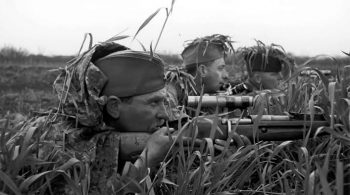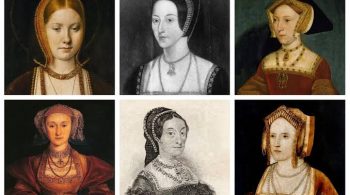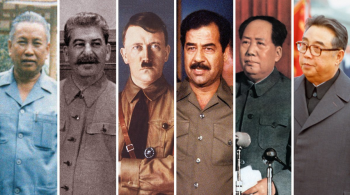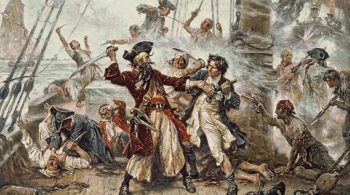The ancient Roman Empire is one of the greatest empires in the history of human civilization. It came out of the Roman Republic. It began in 509 BC. Ok. Emperor Augustus created the Roman Empire in 27 BC. Later it reached its height in 117 AD. Ok. At its peak, the Roman Empire consisted of parts of Europe, North Africa, Britain, and the Middle East. Although he didn’t expand the boundaries during his rule, his successors had a different approach.
The Roman state grew exponentially in land and power through a land-grab method. Ok. He applied it to cities, towns, districts, and even whole countries. This gradually led to the “Romanization” of the areas surrounding the capital Constantinople. Ok. It was a strategic location when the empire expanded north. The success of the empire was due to tact and the strategic skills of the generals of the Roman army.
The rise and fall of the mighty Roman Empire continue to excite, even 1500 years after its death. Ok. The Roman Republic took shape at a time when difficult empires surrounded it. How did Rome manage to defeat its enemies to become the military, economic, political and cultural powerhouse of the West?
There are many answers to this question. Ok. However, one thing, in particular, set the Romans apart from the rest of the world. It was their talent for making war. Ok. Here is a list of the 12 most notable and powerful Roman generals. Ok. We made the list in order following their birth year.
Roman Generals Names
- Scipio Africanus
- Then, Lucius Cornelius Sulla
- Then, Gnaeus Pompeius Magnus
- Also, Gaius Julius Caesar
- Then, Marcus Antonius
- Then, Marcus Vipsanius Agrippa
- Also, Nero Claudius Drusus
- Then, Gnaeus Julius Agricola
- Then, Marcus Ulpius Traianus
- Also, Septimius Severus
- Then, Flavius Valerius Constantinus
- Then, Flavius Aetius
Roman Generals Ranked
Scipio Africanus (236–183 BC)
At the young age of 25, he was given leadership of the Roman forces in Spain. They gave him the purpose of destroying the Carthaginians and their leader. Ok. In the previous fatal attempt, both of the Roman Commanders in charge died. Scipio still assaulted his stronghold in Spain ignoring the fact. He did that because the latter was posted in Italy and had built up an almost impermeable defence there. Ok. However, he was successful. He took the place in 209 BC. After that, a year later, he seized Hasdrubal, Hannibal’s brother, while concealing the size of his forces. Ok. He hid heavily armed and armoured troops behind a front screen of light infantry.
However, his greatest moment was in 202 BCE during the Battle of Zama in North Africa. There he finally succeeded in defeating Hannibal by himself. Ok. It compelled him to return to Carthage on the shore of Lake Tunis. Ok. The First Punic War, which lasted for 17 years, was finally put to an end when Hannibal was required to negotiate a cease-fire with Rome.
However, next in the list of great Roman Generals we have,
Lucius Cornelius Sulla (138–78 BC)
He was the general, Republican Consul, and Rome’s Dictator.
Sulla rose through the ranks of the Roman army despite being born into poverty. He also played a crucial role in the Romans’ victory in the Jugurthine War. Ok. He was the leader of the Numidians. However, he divided Numidia among his royal family in defiance of the Roman order. Ok. Roman retaliation led to the leader’s defeat and exile in Mauritania. The battle came to an unbloody end after Sulla made a bargain with king Bocchus. Ok. He asked to hand Jugurtha over to the Romans. The Senate praised Sulla. After serving as General during the Social War of 91–88 BCE, he later fought alongside Marius against the invading Cimbri and Teutons invaders. Ok. He did that before assuming governmental roles, including that of Consul.
He was the first general to invade Rome after Marius essentially deprived him of his power. Ok. Moreover, he was able to drive Marius out of the city against some of his Commanders’ objections. However, someone would later reappear and take over while Sulla was waging war in Asia. Ok. Sulla invaded Rome once more in 82 BCE, and the Senate appointed him a dictator. Ok. It gave him nearly infinite power, as a reward for his victories.
However, next in the list of great Roman Generals we have,
Gnaeus Pompeius Magnus (106–48 BC)
He is also known as Pompey the Great. He was raised in a wealthy senatorial family in Italy. Ok. Later, he learned political diplomacy and military tactics from his father. His father was a Roman prince. Ok. He was only 19 when his father passed away in 87 BC.
During the turbulent closing decades of the Roman Republic, he served as a commander. They gave him the nickname Magnus, which translates to “great.”
They gave him the nickname because he was a motivating leader. Ok. In 83 BC, he participated as a commander in Sulla’s civil war. He helped to free Rome by finally removing Gaius Marius. Ok. Due to his contribution to this victory, his opponents called him the “teenage butcher.”
In addition, they gave him the status of a brilliant general. He was assigned leadership of 120,000 soldiers and 500 ships in 67 BC. Ok. At that time pirates started posing a threat to Rome’s corn supply. Ok. He found the solution in three months by dividing the sea into 12 zones.
Later, he and 2 others formed the first triumvirate. Ok. To unite the union, Pompey wed Julia, the daughter of Caesar. Ok. But after Julia’s passing in 54 BCE, a gap developed between Pompey and Caesar. Ok. Later, the two found themselves at war. Ok. He eventually fled to Egypt, where he was killed upon arrival after Caesar emerged victorious.
However, next in the list of great Roman Generals we have,
Gaius Julius Caesar (100–44 BC)
During the Siege of Mytilene in 81 BC, Julius Caesar first entered the military. By that time he was only 31 years old. He had become an unstoppable force in the military and was actively involved in Roman politics. Ok. He led the two invasions of Britain and supported the executive leader in gaining the crown. Ok. He won against PP XIII at the Battle of the Nile in 47 BC. Then, he established Queen Cleopatra as ruler of Egypt.
The conquering of Gaul against tribes is one of his most well-known military victories. Ok. Although the Gallic tribes had a strong military, they used their internal wars. He forced them into a situation where they had no choice but to submit. Ok. Rome was able to control the River Rhine as a result.
In 49 BC, he began the Great Roman Civil War against Pompey, an old enemy. Ok. He drove him into exile in Macedonia in under 70 days. It is stated that despite being greatly outnumbered, he managed to win the Battle.
As the ruler of Rome, he changed the calendar. Ok. He also began building a basilica and produced new coins featuring his head. When he was killed in 44 BCE, the Roman Republic effectively came to an end.
However, next in the list of great Roman Generals we have,
Marcus Antonius (83–30 BC)
He was a senior commander of Rome and tactician known for his statesmanship. Ok. He was also commonly known as Mark Antony. Moreover, he was the second-most powerful person during Julius Caesar’s reign. Ok. He started in the public eye as a champion of the common man. However, he later found himself drawn to empire-building and positions of power. Ok. He ruled the majority of the eastern part of the Roman Empire after the king’s death.
Early in his military career, he served in Syria. There he quickly advanced to the rank of cavalry commander. Ok. He was then told to travel to Egypt and Judea. There he fought for Julius Caesar during the Gallic Wars in 54–50 BC. Ok. He was already older than most of his peers at the age of 22. As a result, he quickly attained a position as a public figure who spoke on behalf of Caesar.
He marched against Octavian, the king’s adopted son, after the latter’s death. Ok. It is because he refused to give him the money that belonged to Caesar. He was defeated and left Italy regrettably.
Octavia, the sister of Octavian, was married to Antony. Ok. He later made Cleopatra, the Egyptian queen, his wife and his mistress. He thereby lost his allegiance with Rome. Ok. Finally, he was defeated as a result of the ensuing fight between the two men. Ok. Later, he and Cleopatra fled to Egypt where they committed suicide.
However, next in the list of great Roman Generals we have,
Marcus Vipsanius Agrippa (63–12 BC)
In addition to serving as Octavian’s chief military counsellor, he supervised the construction of Portus Julius port. Ok. It connected Lucrinus Lacus and Lake Avernus and allowed Rome’s ships to effectively defend themselves.
He was well known for both his military prowess and civic feats. Ok. He was in charge of organising water system upgrades and repairs in Rome. He was also involved in the renovation and extension of the Aqua Marcia canal. Ok. It was the introduction of water to new areas of the city. He teamed closely with Augustus after he assumed power. Ok. He did that by fixing roads and structures and planning celebrations for Rome’s citizens. Ok. He later declared, “I discovered the city of brick but left it of marble.”
Augustus gave him a sly nod for that.
However, next in the list of great Roman Generals we have,
Nero Claudius Drusus (38–9 BC)
Drusus was Augustus’ stepson. Ok. However, some claim him to be the biological child of Augustus with Livia. He assumed office five years before the legal retirement age. Ok. At the age of 11, they appointed him as a judge. Later, he joined his older brother T. Ok. Claudius in the battle against the two Alpine tribes.
He was the first Roman general to oversee a campaign on the Rhine. He also oversaw a trip to establish base camps in Germany. Ok. Moreover, he destroyed the tribes of two places after extending his war to the Weser and Elbe rivers.
However, next in the list of great Roman Generals we have,
Gnaeus Julius Agricola (40–93 AD)
He is credited with being the first commander to subjugate all of Britain. He also even acted as governor for some years. Ok. Moreover, he was initially in charge in Rome, but someone moved him to Britain to take authority. Later, when he was governor, he ruled over the entire island. Ok. He built at least 60 forts while serving as governor. Ok. It Romanized the locals and introduced the local nobility to a Roman education.
However, next in the list of great Roman Generals we have,
Marcus Ulpius Traianus (53–117 AD)
He was born in the Roman province of Baetica. His father was the only member of the family to hold an imperial position. Ok. His early years are mostly undocumented. As a child, he accompanied his father to several military headquarters.
He sent troops to the Rhine in 89 to put down an uprising against Domitian the Emperor. Ok. In 91, the emperor rewarded him in the form of one of the two consulships.
However, next in the list of great Roman Generals we have,
Septimius Severus (145–211 AD)
He was born in Libya to a wealthy family. Some members of his family held senatorial positions. Ok. However, others held even more significant positions in politics and the military. He was named legatus, or main military commander, by his cousin, a consul. Ok. His military and political careers both started at this point.
To make the little kingdom of Edessa a Roman province, he proceeded to the east. He amassed an army, and crossed the Euphrates. Ok. To gather support and become emperor, he even held the heir to the throne captive. Ok. He used military action to gain the majority of his power in the ensuing years.
During his administration, he ordered twelve executions and took severe action against corrupt senators. Ok. By revoking the Guard he brought military reform. Ok. It was composed of elite warriors and was designed to defend and protect the emperor. Ok. To build a large general army to defend Rome, he gave them the order to train new warriors to take their place.
Next in the list of great Roman Generals we have,
Flavius Valerius Constantinus (272–337 AD)
He was the son of a Roman army officer. He was transported to the court of the Eastern Roman Empire. Ok. There he received an education and was influenced by Christianity. Ok. It was when his father abandoned his mother and wed the daughter of the Western emperor.
He engaged in combat in Italy in 312 on the Milvian Bridge over the Tiber. Ok. He also participated in the civil war and defended Rome on other fronts as well. Ok. His victory established his claim to succeed Maximian as emperor. Ok. The crosses he placed on his soldiers’ shields during the civil war are proof that he was the first ever Christian ruler.
Next in the list of great Roman Generals we have,
Flavius Aetius (391–454 AD)
He served at the imperial court. He began his career as a youngster guarding the emperor in the Protectores Domestici. Ok. However, he eventually worked his way up to become a tribune member. Ok. He laid the foundation for his future career in politics.
In either the Battle of Catalaunian Fields or the Battle of Chalons, he led the Roman army into battle. Ok. This incident occurred in Gaul in 451 AD (now France). The conflict took place in the third century of the Roman Empire’s control, in its latter years. Ok. Although only temporarily, his victory in this conflict kept Rome at peace.
Roman Generals in The Punic War
Rome and Carthage engaged in three wars between the third and second centuries B.C. They go by the term Punic. Ok. It comes from the Latin and Greek words for Phoenician. Their home city was Tyre, established the city of Carthage in what is now Tunisia in North Africa in 814 B.C.
The first two wars lasted a total of 23 years and 17 years, with a 23-year gap between them. Ok. Nearly three years passed during the third conflict. Ok. It began 52 years after the end of World War II. Rome, which went on to become the most powerful military force in the Mediterranean Sea, won in all three conflicts. Ok. Rome was compelled to develop a powerful navy and a sizable army by its hostility. Ok. Hamilcar Barca and his sons served as the principal military commanders in the battle for Carthage. Ok. Scipio Africanus and Scipio Aemilianus, his adopted grandson, were two of Rome’s most notable leaders.
Roman Generals Armour
The Romans utilised three different kinds of body armour. Ok. Chain mail, or lorica hamata, scaled metal plates, and a hooped arrangement known as lorica segmentata.
Almost all of Roman history saw the usage of mail as a durable form of armour for Roman soldiers. The hooped armour was heavy and costly to build. Ok. It was in use from around the beginning of the Empire until the fourth century. Some types of troops appear to have started using scale armour in the late Republican era.
While the Roman army was known for its uniform equipment, troops were free to purchase their gear. Ok. This allowed wealthy soldiers and elite units to have the greatest equipment.
Roman Generals in Britain
Roman troops in occupation acquired the island of Britain. It is referred to as the Roman conquest of Britain. Under Emperor Claudius, it started in earnest in AD 43. Ok. It was substantially finished in the southern half of Britain by 87. It was the time when the Stonegate was built. Ok. Scotland and the far north took longer to conquer, with varying degrees of success.
In various conflicts against British tribes, notably the Battle of the Thames and the Battle of the Medway, as well as later in time Caratacus’s final conflict and the Roman conquest of Anglesey, the Romans under their general Aulus Plautius first made their way inland. Ok.
Following a large-scale revolt in AD 60 during which Boudica ransacked Camulodunum, Verulamium, and Londinium, the Romans put an end to the uprising in the Boudicca Defeat. Ok. In the Battle of Mons Graupius, they eventually advanced as far north as central Caledonia.
Roman Generals Killed in Battle
- Titus Afranius
- Then, Aulus Hirtius
- Then, Titus Didius
- Also, Flavius Romulus
- Then, Traianus
- Then, Octavius Mamilius
- Also, Publius Attius Varus
And many others.
FAQs on Roman Generals
Who is the most famous Roman leader?
Caesar Augustus.
Gaius Octavius Thurinus, also known as Octavian or “Augustus,” served as the first official emperor of the Roman Empire, and is often seen by historians as the greatest.
Who were Rome’s greatest leaders?
5 of Rome’s Greatest Emperors:
Augustus.
Trajan 98 – 117 AD. Ok. Marcus Ulpius Trajanus (53 –117 AD) is one of the consecutive Five Good Emperors, three of whom are listed here.
Hadrian 117 – 138 AD.
Marcus Aurelius 161 – 180 AD.
Aurelian 270 – 275 AD.
Who was Rome’s last great general?
Flavius Aetius
Was Maximus a real Roman general?
Magnus Maximus, a Roman usurper and Western Roman Emperor from 383 to 388 CE lived from approximately 355 to August 28, 388 CE. Ok. He was a well-known general in the Roman army, especially in the British province. Ok. He overthrew the rightful Western emperor Gratian in 383 CE and took the throne.





